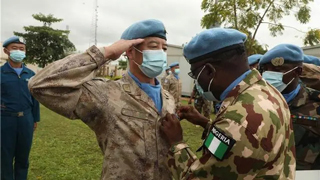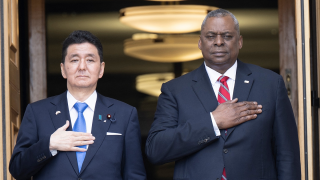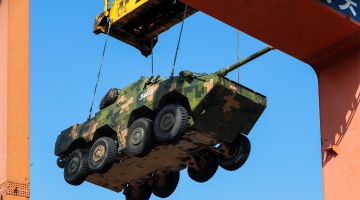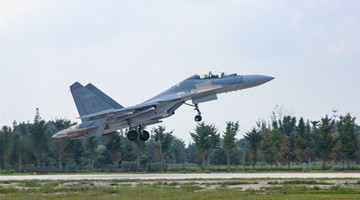
?
By Fang Xiaozhi
It is reported that the US and ASEAN are holding a five-day joint maritime drill in waters east of Bangkok, Thailand, with the aim of “safeguarding maritime security and focusing on stopping and preventing maritime misconduct”, which is the first time that the US and 10 ASEAN countries host joint military drill, and also an important military measure in the context of US’ deepening its Indo-Pacific Strategy, intending to greatly push forward the military cooperation between the parties and have a significant influence on regional security pattern.
Southeast Asia is an important area for the US global strategic deployment, which from a geostrategic point of view, is located between the Pacific Ocean and the Indian Ocean and holds many sea passages including the Straits of Malacca that are of great value for the US to move troops from the Pacific Ocean to the Indian Ocean and the Middle East. The region is also rich in oil and natural gas resources. Therefore, it is truly very important for the US and has always been the focus of the US’ attempts of control.
With the continuous deepening of the US Indo-Pacific Strategy in recent years, the strategic position of Southeast Asia has become increasingly obvious, and the region has become one of the US' priority objectives for its global strategic resource allocation adjustments. The US has increasingly recognized the importance of its unique geographical advantage, and regarded it as an important fulcrum for deepening the Indo-Pacific Strategy.
To this end, the US has increased its efforts to deploy more troops to the Asia-Pacific region, so as to enhance its involvement in the regional trending issues. At the same time, it has also actively expanded defense relations with countries in the region, deepened its military cooperation with traditional allies such as the Philippines, Thailand and Singapore, etc., and strengthened defense exchanges with non-allies such as Indonesia and Vietnam.
On June 1, 2019, then US Acting Secretary of Defense Patrick Michael Shanahan stated on the Indo-Pacific Strategy at the Shangri-La Dialogue in Singapore that, in the next five years, the US will comprehensively strengthen military relations with ASEAN, maintain its military superiority in the region and, list countries such as the Philippines, Thailand, Indonesia and Singapore as the core partners in the US security network.
Strengthening the military cooperation relationship between the US and the ASEAN countries also helps make up for the short board that appeared in the building of the Indo-Pacific strategic arc,which echoes with the US bases in Northeast Asia, Central Asia and South Asia, making the “Indo-Pacific strategic arc” more perfect.
However, although the US attached more and more importance to Southeast Asia and has taken corresponding measures, it has not been able to change the decline of the US' influence in the region. The Trump administration advocates all the way the “American interest first” concept. Therefore, a contradictory mentality is formed, that is, the US wants to strengthen cooperation with Southeast Asian countries, but is unwilling to invest enough strategic resources in the region. As a result, the actual effort of providing ASEAN with security and defense is not enough.
In addition, the US neglected ASEAN’s own initiative and over-idealized the notion that some ASEAN countries’ security all depends on the US, while ignoring the reality that it actually increases the sense of uneasiness in ASEAN countries.
For a long time, maintaining “strategic balance” has always been the political lifeline of ASEAN. With the continuous upgrading of ASEAN, it hopes to improve collective competitiveness and independence. Therefore, ASEAN has become more objective and rational in foreign strategy, and will never make a one-way choice. ASEAN will not set the interests of its development aside and become a “pawn” to some big powers. Instead, it will participate more extensively and actively in the international cooperation within the Indo-Pacific region. ASEAN could lead and establish a regional security and economic cooperation platform, and play its unique role more efficiently in case the big powers fail to build a regional cooperation framework.
(The author is a researcher at the BRI Institute of Strategy and International Security, Fudan University)











